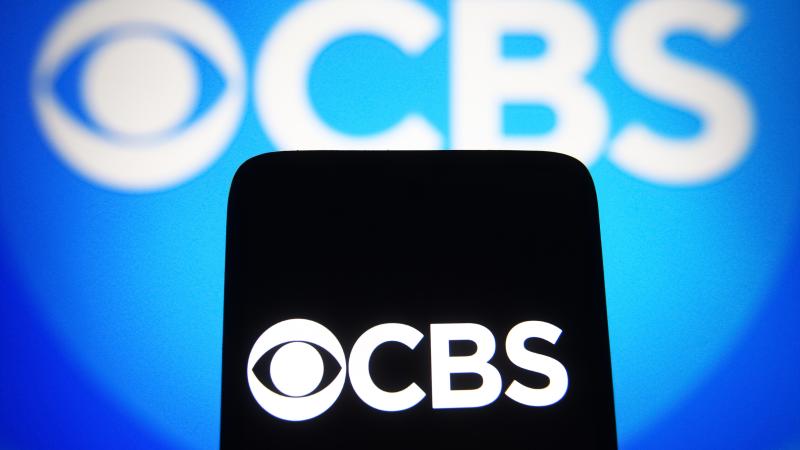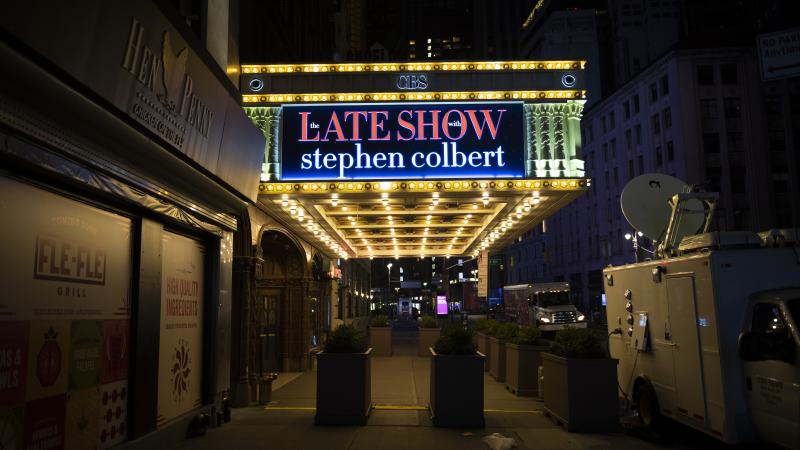NYT editors force reporter out for referring to slur previously allowed in newspaper repeatedly
Paper's editors oppose usage of the word "regardless of intent," but paper has printed it many times.
The New York Times is facing questions over what appears to be an institutional double standard: The paper recently forced out a reporter for having referred to a racial slur several years ago, yet the news organization has itself repeatedly printed the word in question, including as recently as last week.
Times science reporter Ronald McNeil announced his resignation from the paper last week after several weeks of controversy following a Daily Beast report that he had uttered a racial slur on a Times trip with high school students in 2019.
The Beast reported that multiple students accused McNeil of "using the 'n-word'" on the trip. Although Times leadership initially concluded that McNeil's behavior wasn't "hateful or malicious," dozens of Times staffers mounted a campaign to pressure the paper's top editors to censure or dismiss McNeil.
McNeil announced that he was departing the paper last week. In his announcement, he said that a student on the trip had asked him whether he thought another student should have been suspended for having used the word the n-word in a video years before.
"To understand what was in the video," McNeil wrote, "I asked if she had called someone else the slur or whether she was rapping or quoting a book title. In asking the question, I used the slur itself."
That decision would ultimately lead to a public pressure campaign against McNeil, following which he resigned this week with the approval of the paper's top management. Yet the Times itself has repeatedly printed the slur in question, evidently with no editorial objections. The word most recently appeared in the paper last week. The word also showed up in print last December. Other examples range from last July to last March to 2018 to 2017.
At the time of McNeil's announced departure, Times Executive Editor Dean Baquet and Managing Editor Joseph Kahn released a statement supporting the decision. "We do not tolerate racist language regardless of intent," the editors wrote.
Baquet did not respond to queries asking for clarification on the paper's policy on racial slurs, including its past usage of them and whether or not it would cease using them in any context in the future.
Outside of straight reportage, the word has emerged elsewhere in connection with Times staffers: staff writer Nikole Hannah-Jones, who spearheaded the paper's controversial 1619 Project, has used the word on Twitter several times.
Nearly all of Hannah-Jones's tweets were deleted this week, shortly after her earlier usage of the slur began to receive media attention. Asked about the deletions, Hannah-Jones told Just the News that her Twitter feed is "set to automatically delete at regular intervals." She did not respond when asked about her having used the slur in the past.
Writers group, multiple writers slam Times's decision
Following McNeil's resignation, at least one major writers' group and multiple media commentators criticized Times leadership for effectively forcing the reporter out of his position. McNeil had been with the paper for over four decades.
PEN America, a group which bills itself as "protect[ing] free expression in the United States and worldwide," said in a statement that the Times had sent a "worrying signal" with its behavior in response to the controversy.
"For reporter Donald McNeil to end his long career, apparently as a result of a single word, risks sending a chilling message," PEN CEO Suzanne Nossel said. "That the paper apparently altered its course in relation to this incident as a result of public pressure is a further worrying signal."
"The Times' readers depend upon its journalists and editors to be able to carry out their work without fear that a lone errant statement may cost them their job," she added.
Journalist Glenn Greenwald, meanwhile, in a sharply worded essay criticized the Times' course of action. Noting that dozens of McNeil's colleagues had argued that "intent is irrelevant" where racist words are concerned, Greenwald wrote: "Now [McNeil's] forty-five-year career and reputation are destroyed — at the hands of his own colleagues — because 'intent is irrelevant' when using off-limit words."
Columbia University professor and linguist John McWhorter in another essay criticized those who had led the effort to oust McNeil from the paper, claiming that they cast black Americans in a negative light by doing so.
"The idea that it is inherent to black American culture to fly to pieces at hearing the N-word used in reference is implausible at best, and slanderous at worst," McWhorter wrote. Insisting upon that standard, he argued, "makes it look like black people are numb to the difference between usage and reference, vague on the notion of meta, given to overgeneralization rather than to making distinctions."
McWhorter declined to comment further for this article, citing a full schedule, though he shared with Just the News a passage from his upcoming book "Nine Nasty Words," in which he wrote about "the new hypersensitivity about the N-word" that has arisen over the last few decades.
"The new idea," McWhorter writes of the transformation, "was that the word was unutterable regardless of context." He cited a 1995 radio interview focused on the word "in which I and the guests were free to use it when referring to it, with nary a bleep. That had been normal until then, but would not be for much longer, such that the interview is now a period piece."
And at New York Magazine, Jonathan Chait accused the Times of retroactively deploying standards against McNeil developed in the face of publish pressure.
"Describing the use of a slur is now, per Times policy, no better than using it," Chait wrote. "Given the institutional importance of the Times, this seems to be a watershed moment."
Times staffers squabble over McNeil's departure
McNeil's departure from the Times reportedly set off a firestorm of debate among employees of the paper. Washington Free Beacon reporter Aaron Sibarium reported this week on a raging debate in a private New York Times Facebook group, with some employees defending McNeil and others justifying his ouster from the paper.
Nikole Hannah-Jones was among those indicating that she disapproved of McNeil's use of the word, writing on Twitter at one point of how she was "not interested" in reading "every dumb take about why it's unfair that some people can use the word and others can't."
Hannah-Jones declined to comment on the situation involving McNeil beyond writing: "I did not put pressure on the NYT to take stronger action or any action against Don McNeil."
In the Daily Beast's reportage on the controversy, the outlet claimed that Hannah-Jones at a meeting with Baquet said she "planned on calling the parents and students on the trip to determine what McNeil had said and in what context."
Asked if she had made those remarks during that meeting, Hannah-Jones told Just the News: "No, I did not say that."















